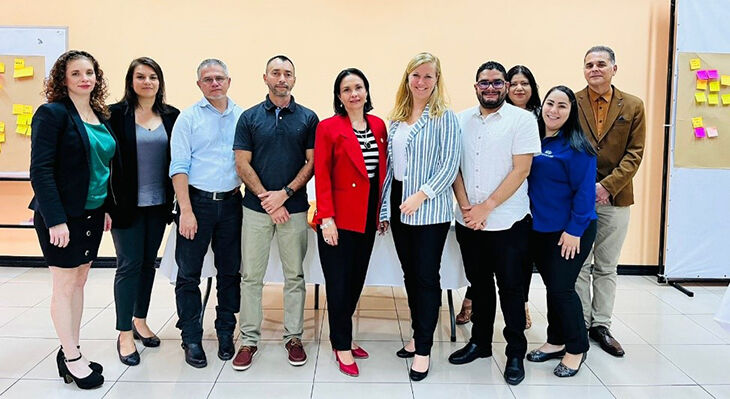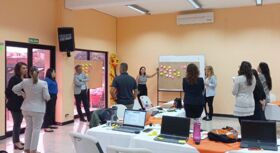Dual vocational training in Costa Rica - an interim assessment
Since the beginning of 2022, dual vocational education and training has been implemented in Costa Rica - a good time to take stock and set the course for the future.

As part of the bilateral cooperation of the Federal Ministry of Education and Research (BMBF) with Costa Rica, GOVET visited the Costa Rican partners in November 2022. Together GOVET and the partners assessed the current status of the training programmes and implementation activities introduced so far. The introduction of dual vocational education and training (VET) in Costa Rica is based on the law on dual technical education passed in 2019. In addition to the three programmes with over 30 trainees that started in February and March this year, other companies have started in different training tracks over the course of the year 2022. As awareness of dual vocational education and training (Educación y Formación Técnica Profesional Dual) grows in Costa Rica, so does the interest of business associations and companies. In various rounds of talks and workshops, e.g. with the umbrella organisation of chambers UCCAEP (Unión de Costarricense de Cámaras y Asociaciones del Sector Privado), the Costa Rican Chamber of Industry (Cámara de Industrias de Costa Rica), the Free Trade Zone Association (Asociación de Empresas de Zonas Francas de Costa Rica - AZOFRAS) or with the Ministry of Education (Ministerio de Educación Pública) and INA (Instituto Nacional de Aprendizaje), the growing importance of dual VET in the country became clear.

All the more reason for a joint interim assessment after the first implementation phase to take a look at the learning experiences and the resulting need for adaptation and improvement. The focus here was on the demand of the representatives of chambers and free trade zones to simplify and streamline the administrative processes that companies go through before and during training. If processes are not simplified, companies might be deterred by excessive hurdles in the organisation and implementation of dual training.
There was constructive feedback from the companies already involved and their trainers - called mentors in Costa Rica - especially about the training course for this staff: methodical didactic preparation for the tasks of the training was absolutely necessary, but the existing course did not include enough practical exercises. The focus should be on teaching the mentors how to act. The companies wanted a shorter course and additionally continuous support for their trainers/ mentors over several months.
Close cooperation between business and the government

In a face-to-face meeting of the working group of the inter-institutional VET Commission (Comisión Asesora y Promotora), the members analysed the feedback in order to derive concrete work packages and improvement steps. In an interview with GOVET, Vice Minister of Education Melvin Chaves Duarte spoke in favour of designing vocational education and training in such a way that young people are equipped with the skills and competences relevant for companies and that the transition to the labour market is as successful as possible.
In future developments, the close cooperation of business and government - with the participation of the trade unions - will play a major role. New training programmes must be aligned with the needs of the companies so that they can be established successfully and in the long term. The public training providers will have to react flexibly and in the short term to the needs of the business community in order to gradually expand the offer. The preconditions for further expansion have been created with groundbreaking legislation, solid institutionalisation and the broad participation of stakeholders.